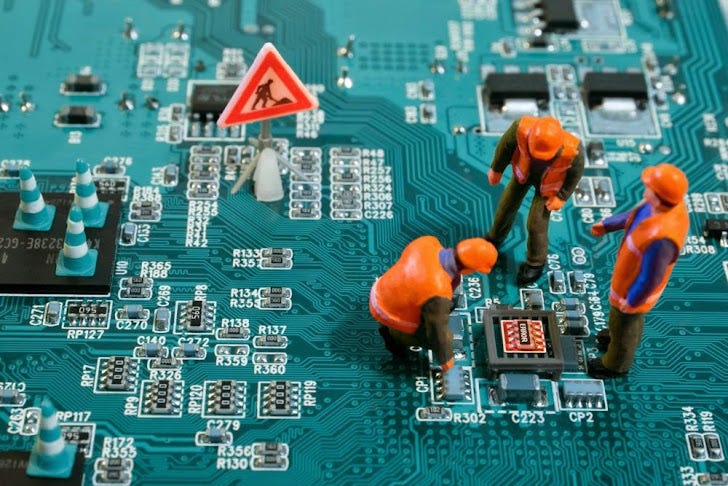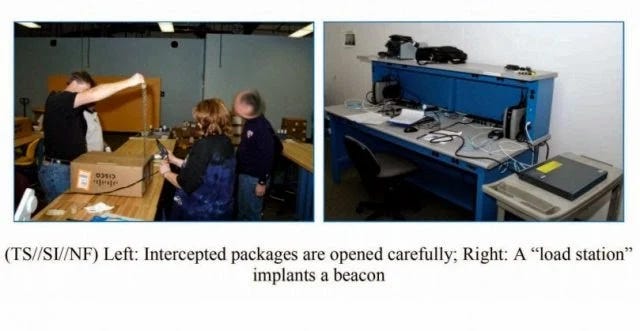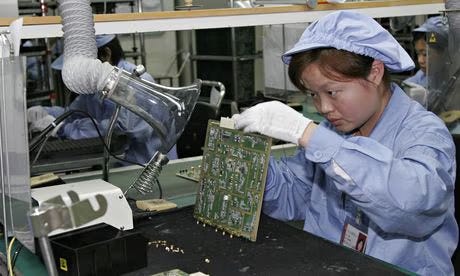Today's Lesson: Why Video Matters - CNN/MSNBC/FOX praise Israel's terrorist attack on thousands of Muslims
see the hospital pager video for yourself and you make the call:
CNN, MSNBC, FOXNEWS won’t show you what you see here: multiply this scene by 3,000 more victims, including children, and you get the single largest terrorist attack in modern Middle Eastern history - BUT that didn’t stop CNN/MSNBC/FOXNEWS from trotting out military generals, Congressmen and Ziopundits who incessantly PRAISED, PRAISED, PRAISED Israel’s vicious terrorist attack as some kind of incredible “intelligence success.”
CNN, MSNBC, FOXNEWS are still gloating about Israel’s fantastic “intel operation.”
CNN, MSNBC, FOXNEWS never, ever call Israel’s terrorist attacks a terrorist attack.
Emergency Room Pager Video:
Israel learned this from U.S. intel agencies: CIA and NSA, who have been intercepting electronic equipment shipments for decades and implanting devices inside.
Don’t think so?
NSA Reportedly Intercepts US-made Internet Routers to Install Spyware
The US Intelligence Agency, NSA has been reportedly intercepting and accessing routers, servers, and other computer networking hardware to plant data gathering "backdoors" and other spywares before they are exported and delivered to the international customers, reported by the Guardian.
Yesterday in a published excerpt of his forthcoming book, "No Place to Hide", Journalist Glenn Greenwald underlines the interest of National Security Agency in planting backdoors in U.S. suppliers' routers and other networking devices in order to carry out its massive surveillance program.
"A June 2010 report from the head of the NSA's Access and Target Development department is shockingly explicit," Greenwald said. "The NSA routinely receives — or intercepts — routers, servers and other computer network devices being exported from the US before they are delivered."
While US government is always prohibiting the purchase of Huawei products due to suspected backdoors from the Chinese government, however the book written by Glenn Greenwald reads that the US government does the same thing with US suppliers' hardware and repackages them with a factory seal before supplying them to overseas nations.
As Greenwald notes in the excerpt, "It is quite possible that Chinese firms are implanting surveillance mechanisms in their network devices. But the US is certainly doing the same."
"The agency then implants backdoor surveillance tools, repackages the devices with a factory seal, and sends them on. The NSA thus gains access to entire networks and all their users. The document gleefully observes that some 'SIGINT tradecraft…is very hands-on (literally!)'," Greenwald writes.
According to Greenwald, the document of this new revelation is going to release today. His new book is based upon the leaked documents from 2010 provided by the former NSA contractor Edward Snowden that detailed the NSA receiving or intercepting various devices in the US before exporting them to foreign countries, which he apparently obtained from Snowden.
Image Credit: Arstechnica
So far, The US National Security Agency (NSA) has been working with the security firm RSA on planting backdoors to spy on people, but if these allegations by Greenwald are correct, it's all clear that all manner of US companies must be complicity involved with the agency.
By planting backdoors surveillance systems in the equipments, the NSA could feasibly gain access to the vast networks and users.
"In one recent case, after several months a beacon implanted through supply-chain interdiction called back to the NSA covert infrastructure," the NSA report says, according to the Guardian. "This callback provided us access to further exploit the device and survey the network."
It's not first time the NSA has been accused of this type of allegation. Also a report from German newspaper Der Spiegel alleged that the US intelligence agency intercepts the shipping deliveries to plant back doors in electronic equipments in order to gain remote access of the systems, including computers' hard drives, routers, and other devices from companies such as Cisco, Dell, Western Digital, Seagate, Maxtor, Samsung, and Huawei.
Glenn Greenwald: how the NSA tampers with US-made internet routers
This article is more than 10 years old
The NSA has been covertly implanting interception tools in US servers heading overseas – even though the US government has warned against using Chinese technology for the same reasons, says Glenn Greenwald, in an extract from his new book about the Snowden affair, No Place to Hide
For years, the US government loudly warned the world that Chinese routers and other internet devices pose a "threat" because they are built with backdoor surveillance functionality that gives the Chinese government the ability to spy on anyone using them. Yet what the NSA's documents show is that Americans have been engaged in precisely the activity that the US accused the Chinese of doing.
The drumbeat of American accusations against Chinese internet device manufacturers was unrelenting. In 2012, for example, a report from the House Intelligence Committee, headed by Mike Rogers, claimed that Huawei and ZTE, the top two Chinese telecommunications equipment companies, "may be violating United States laws" and have "not followed United States legal obligations or international standards of business behaviour". The committee recommended that "the United States should view with suspicion the continued penetration of the US telecommunications market by Chinese telecommunications companies".
The Rogers committee voiced fears that the two companies were enabling Chinese state surveillance, although it acknowledged that it had obtained no actual evidence that the firms had implanted their routers and other systems with surveillance devices. Nonetheless, it cited the failure of those companies to cooperate and urged US firms to avoid purchasing their products: "Private-sector entities in the United States are strongly encouraged to consider the long-term security risks associated with doing business with either ZTE or Huawei for equipment or services. US network providers and systems developers are strongly encouraged to seek other vendors for their projects. Based on available classified and unclassified information, Huawei and ZTE cannot be trusted to be free of foreign state influence and thus pose a security threat to the United States and to our systems."
The constant accusations became such a burden that Ren Zhengfei, the 69-year-old founder and CEO of Huawei, announced in November 2013 that the company was abandoning the US market. As Foreign Policy reported, Zhengfei told a French newspaper: "'If Huawei gets in the middle of US-China relations,' and causes problems, 'it's not worth it'."
But while American companies were being warned away from supposedly untrustworthy Chinese routers, foreign organisations would have been well advised to beware of American-made ones. A June 2010 report from the head of the NSA's Access and Target Development department is shockingly explicit. The NSA routinely receives – or intercepts – routers, servers and other computer network devices being exported from the US before they are delivered to the international customers.
The agency then implants backdoor surveillance tools, repackages the devices with a factory seal and sends them on. The NSA thus gains access to entire networks and all their users. The document gleefully observes that some "SIGINT tradecraft … is very hands-on (literally!)".
Eventually, the implanted device connects back to the NSA. The report continues: "In one recent case, after several months a beacon implanted through supply-chain interdiction called back to the NSA covert infrastructure. This call back provided us access to further exploit the device and survey the network."
It is quite possible that Chinese firms are implanting surveillance mechanisms in their network devices. But the US is certainly doing the same.
Warning the world about Chinese surveillance could have been one of the motives behind the US government's claims that Chinese devices cannot be trusted. But an equally important motive seems to have been preventing Chinese devices from supplanting American-made ones, which would have limited the NSA's own reach. In other words, Chinese routers and servers represent not only economic competition but also surveillance competition.













